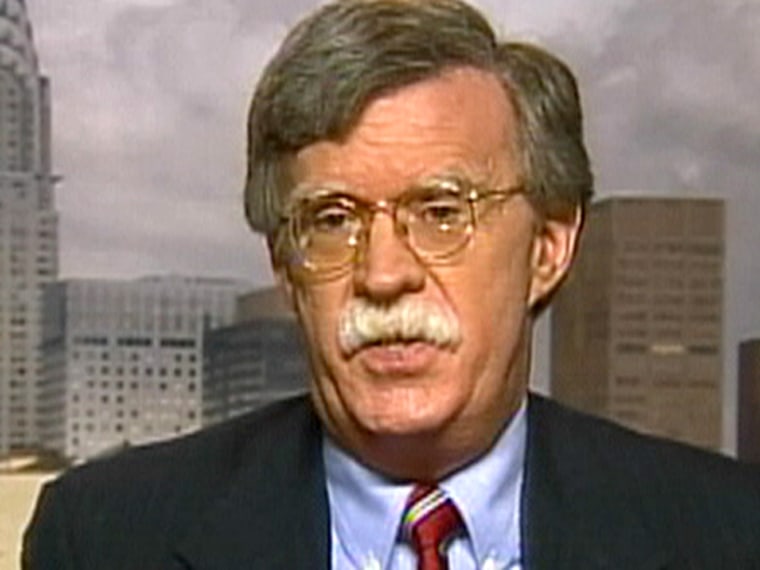The White House Thursday complained that politics is holding up a Senate vote on President Bush's attempt to retain John Bolton as the U.S. ambassador to the United Nations.
"It seems that at this point any objections are based on old political grievances and not his actual performance, and at a time when we are engaged in very important diplomatic activity, it doesn't seem constructive to be trying to play politics," said White House spokesman Tony Snow.
Administration officials have been trying to answer concerns from Rhode Island Republican Sen. Lincoln Chafee, who last week moved to delay a vote on Bolton and demanded answers on the administration's Middle East policies.
Chafee considerations
The national Republican Party made a last-minutse surge to help Chafee win a difficult Republican primary challenge in Rhode Island Tuesday even though the moderate senator has voted against many of Bush's priorities and did not vote for his re-election in 2004.
Chafee holds the decisive vote on Bolton in the Senate Foreign Relations Committee, and whether he would drop his objections to Bolton was unclear since he is likely to face a strong Democratic challenger in the November election and may not want to be seen as helping Bush.
Bolton background
If no Senate vote is held, Bolton's future at the United Nations will be in doubt. After Senate Democrats blocked a floor vote on him last year, Bush bypassed the Senate and appointed him during a congressional recess. That appointment expires in January.
Bolton had a reputation as an abrasive figure in previous jobs with hawkish and outspoken views on Iran, the Middle East and the United Nations. But he seems to have been more a consensus-builder as U.S. ambassador to the world body.
Snow called Bolton "an extraordinarily capable and effective diplomat" and added, "We see no reason why he not only should be confirmed by the United States Senate but done so with a certain amount of enthusiasm."
